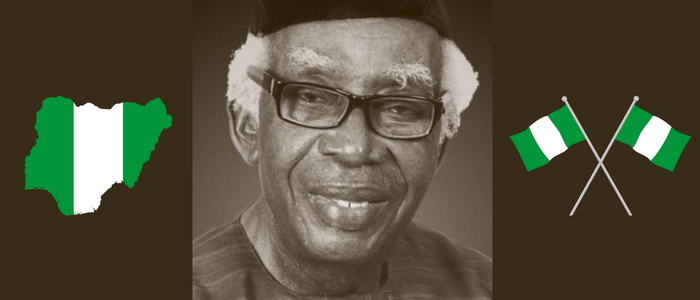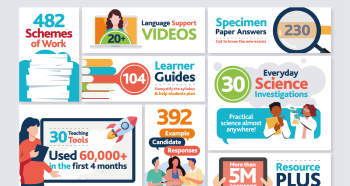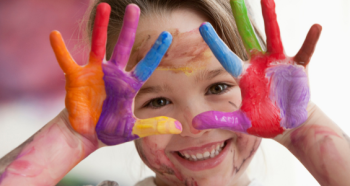“As an intimate form of expression that opens doors to others, poetry enriches the dialogue that catalyses all human progress, and is more necessary than ever in turbulent times.”
Audrey Azoulay (Director General of UNESCO)
Offered as an introduction to this year’s UNESCO World Poetry Day (March 21), Audrey Azoulay’s words strike a chord with everyone here in the English team at Cambridge Assessment International Education. As true believers in the power of poetry to open minds and connect lives, we revel in the task of choosing poetry texts for our learners – and eagerly await the outcomes of the dialogue those enquiring young minds will go on to have with the poems we’ve selected.
As such, at Cambridge, we are always working not only to represent the very best poetic writing within our literature syllabuses, but also to reflect and celebrate the extraordinary range of thought and experience that exists across the global Cambridge community. Consequently, with each iteration of every literature syllabus we listen ever closer to the diverse voices of that community, always with the aim of introducing Cambridge learners to writers that will expand their horizons, wherever in the world they may find themselves.
From William Shakespeare to Maya Angelou, or from Sujata Bhatt to the many and varied poets in Songs of Ourselves, we hope the writers we choose will spark a dialogue between reader and text that will truly endure.
To celebrate World Poetry Day 2023, we are therefore delighted to draw attention to one such writer: namely, the Nigerian master Gabriel Okara, a selection of whose poetry we are proud to present to learners as part of the offering for Cambridge AS/A Level Literature in English for first assessment in 2025.

A Short Critical Biography
Born in 1921 into a Nigeria yet to emerge from British colonial rule, Okara lived out his ninety-seven years amidst currents of great change. From a childhood spent soaking up local wisdom upon the banks of the Niger Delta, he would later bear witness not only to the rush to independence and the rise of Nigeria as a unique cultural force on the international stage, but also to the tragedy of the Nigerian-Biafran War and the environmental and human costs of global corporate greed, as played out across his homeland’s oil fields. As the years passed, Okara would find in Nigeria a source of both great hope and intense distress; and as his writing developed, Nigeria would find in Okara perhaps its most eloquent and dauntless voice.
Throughout his career, Okara’s most profound inspiration typically grew from the legends, rhythms, and traditions of the Ijaw people of the Niger Delta. Indeed, as the waves of history crashed around him and lent his work its primary themes, the enduring significance of his poetry arose at the intersection between modernity, mythology, and his deep affinity with the natural world. In 1953, he gained national acclaim for his poem ‘The Call of the River Nun’ – described by Brenda Marie Osbey as a “touchstone, prayer, protest and lyric anthem for the restoration and protection of the unified natural and human habitat of the Niger Delta” (p.xvi, Gabriel Okara Collected Poems, 2016) – by winning an award for Best All-round Poetry at the Nigerian Festival of Arts. Subsequently, he went on to achieve wider recognition for his first novel, The Voice (1964), which ingeniously embodied its powerful account of postcolonial frictions through a fusing of Ijaw syntax and English vocabulary. In Okara’s own words,
“As a writer who believes in the utilization of African ideas, African philosophy and African folklore and imagery to the fullest extent possible, I am of the opinion the only way to use them effectively is to translate them almost literally from the African language native to the writer into whatever European language he is using as his medium of expression. I have endeavoured in my words to keep as close as possible to the vernacular expressions. For, from a word, a group of words, a sentence and even a name in any African language, one can glean the social norms, attitudes and values of a people.” (p.137, African Writers on African Writing, ed. G.D. Killam (1973))
But while Okara became a figure of some international renown in 1979 as the first African to win the Commonwealth Prize for best poem, it was not until the final years of his life that his true significance in African – and global – poetry came to the fore, with the belated publication in 2016 of his Collected Poems. Forming the basis of the selections on our Cambridge AS/A Level Literature in English syllabus, this remarkable volume demonstrates without question how Okara’s themes resonate as profoundly today as ever.
Whether lounging on a fisherman’s canoe or battling in the realm of the Gods, the voices that populate Okara’s work ceaselessly find the courage to confront the troubles of today, but never fail to look beyond their immediate strife on a journey towards a deeper, more enduring truth. We hope that this brief introduction to his poetry will inspire our fellow members of the Cambridge community to join him – and us – on that journey.
Links to Okara’s works
Below, you’ll find links to two of Okara’s best-known poems, both included in our selection for the AS/A Level Literature in English syllabus:
‘You Laughed and Laughed and Laughed’ and‘Piano and Drums’.
Both poems explore themes of culture, conflict, colonialism, and racism, which occur frequently in Okara’s work.
In ‘You Laughed and Laughed’, Okara explores the pain caused by the disrespect European foreigners show towards Nigerian culture.
A recording and brief introduction can be found here. The full text of the poem can be found here.
Through the theme of music in postcolonial Africa,‘Piano and Drums’ explores the conflict and paradoxes at play in modern African cultural identity. A recording, together with a brief introduction to the poem, can be found here. The full text can be accessed here.
This blog was jointly authored by Dr. Peter Johnston, Tricia Harriss, Sonia Attwell, and David Blaikie, from the English team at Cambridge Assessment International Education.





